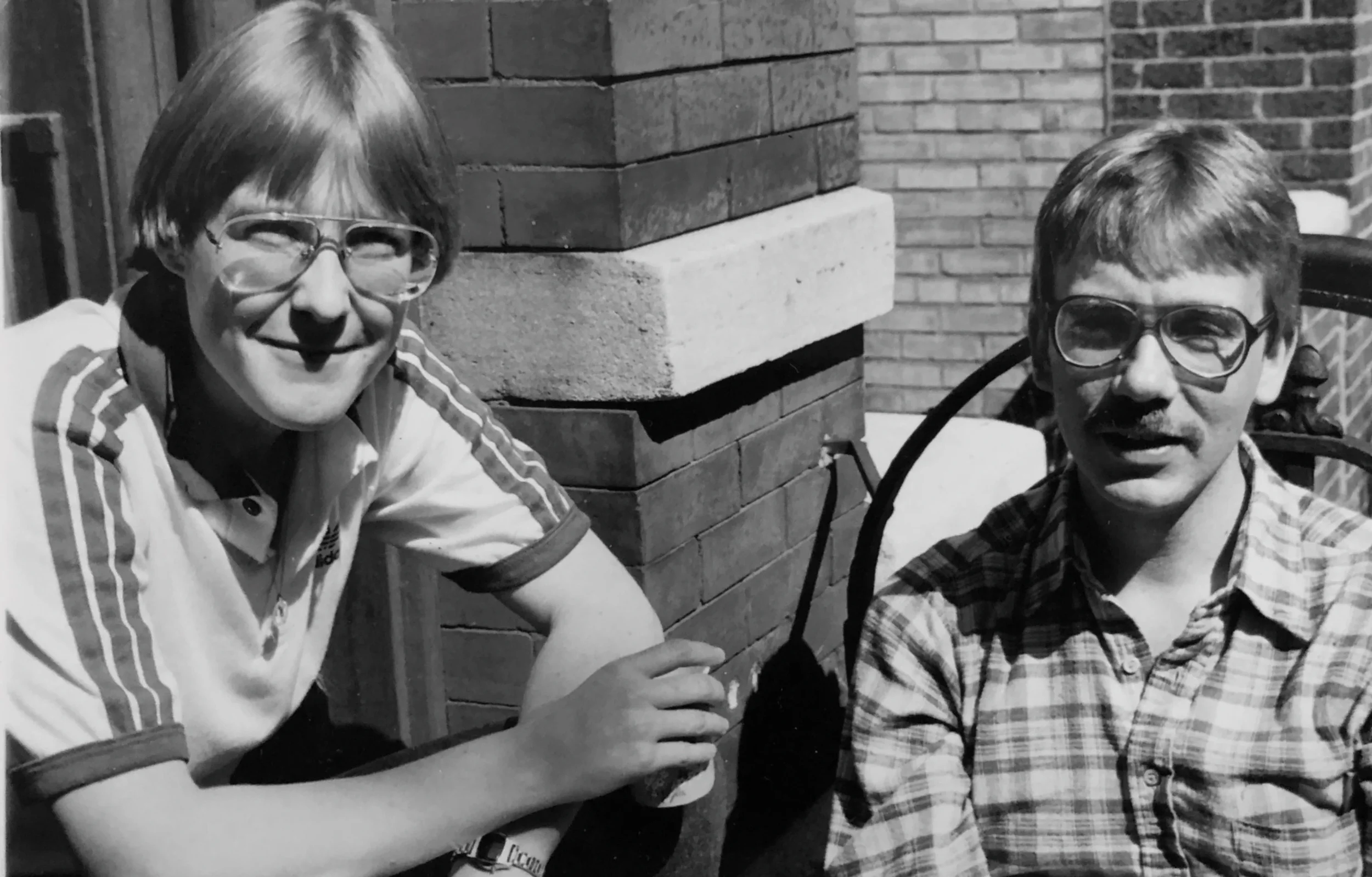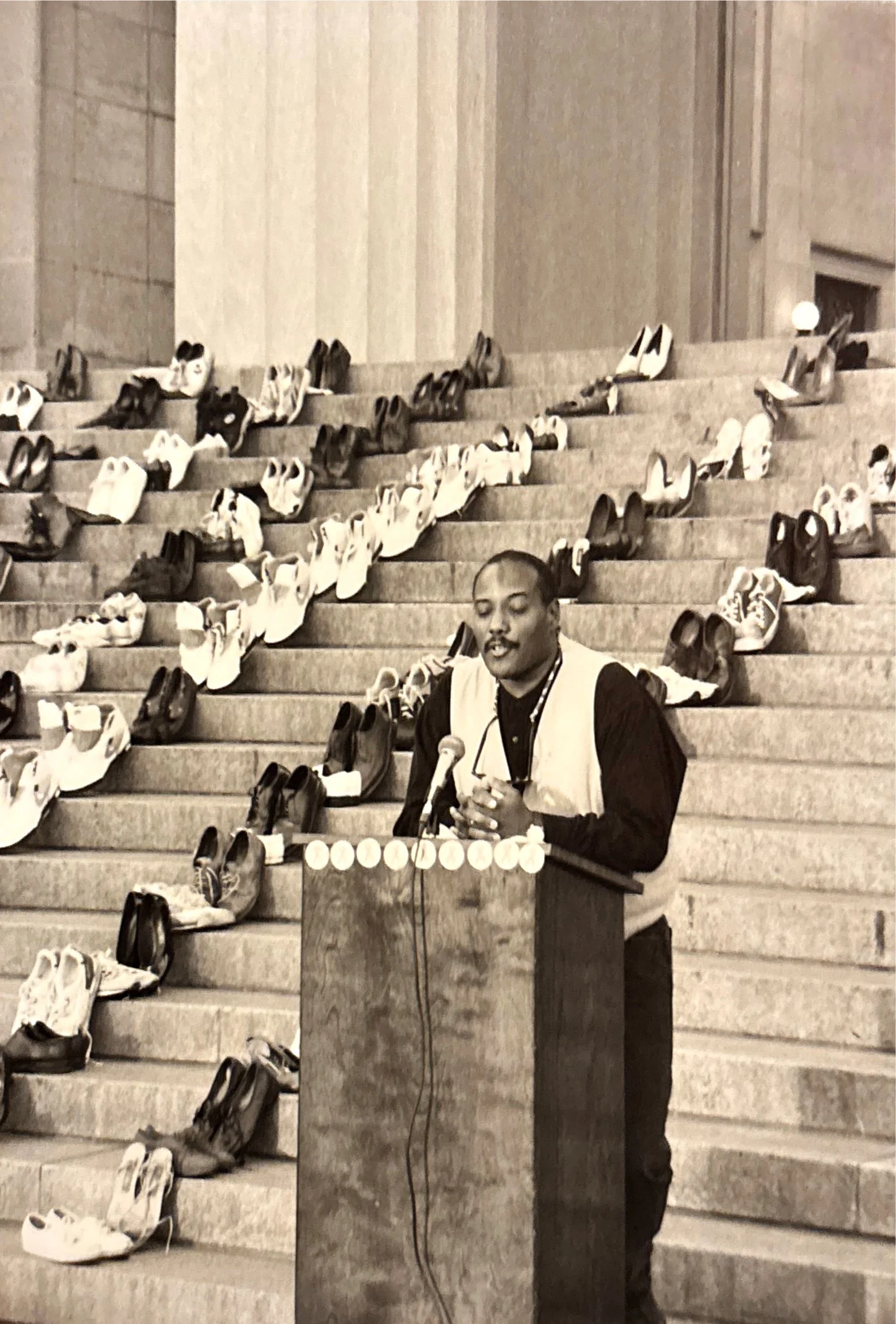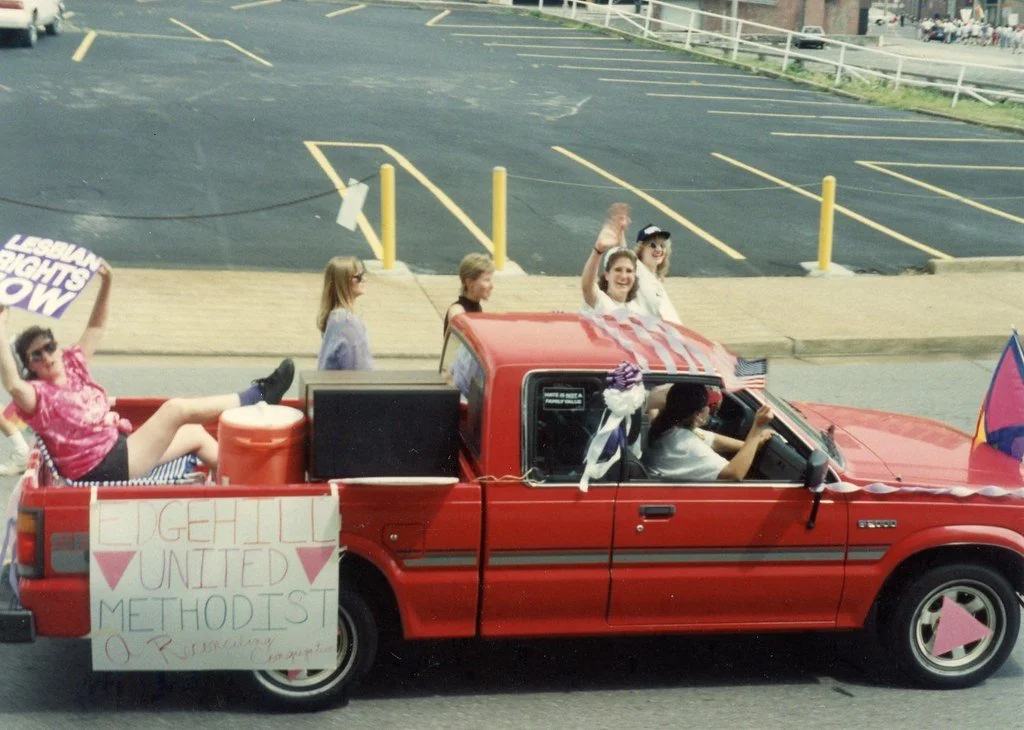A Legacy of Belonging: Edgehill and LGBTQIA+ Inclusion
The Tennessean, June 1977
At Edgehill United Methodist Church, we believe that EVERYONE has a place at this table—and that belief has shaped our identity for decades. Since the early 1970s, our congregation has been committed to hospitality, justice, and the inclusion of our LGBTQIA+ siblings. That commitment has grown deeper through seasons of courage, conversation, and continual discernment.
Opening Our Doors in 1971
When the Metropolitan Community Church (MCC)—a denomination ministering primarily to gay and lesbian Christians—was looking for a place to worship, no other church in Nashville would host them. Edgehill said yes. Our church council voted unanimously to offer them our sanctuary on Sunday evenings. When an arson attack later destroyed their temporary worship space, MCC returned to Edgehill, and we again welcomed them in. Overtime, MCC shifted from simply using our space to becoming an important part of the fabric of Edgehill.
Drawing the Blueprints for the Reconciling Movement
In 1984, after the United Methodist Church adopted a policy excluding "self-avowed, practicing homosexuals" from ordained ministry, Edgehill resisted and unapologetically maintained its stance on inclusion. We joined the Reconciling Ministries Network (RMN) and became the first Reconciling Congregation in the Southeastern Jurisdiction of the UMC. What is more, the discernment work we did in the 70s with the MCC was used as the blueprint and model for the formation of the RMN. Edgehill member Rev. Beth Richardson was the co-founder of RMN.
Responding to the HIV/AIDS Crisis
As the HIV/AIDS epidemic unfolded in the 1980s and 1990s, Edgehill stood with our LGBTQIA+ siblings when many others turned away. In a time marked by fear, misinformation, and isolation, we chose presence, care, and compassion.
We hosted support groups and prayer services for people living with HIV/AIDS, as well as for their families, caregivers, and partners—many of whom had been rejected by their own churches and families. Our building became a place where people could grieve without shame, find community without judgment, and be reminded that they were not alone.
Members of our congregation visited hospital rooms, sat at bedsides, and held memorials, and literally turned their homes into hospice care for people dying from HIV/AIDS. We worked with local organizations to provide meals, transportation to doctor’s appointments, and emotional support. Volunteers from Edgehill quietly but faithfully showed up—to advocate, to listen, to pray, to remember.
In a decade when HIV/AIDS was still widely misunderstood and stigmatized—particularly in the South—we affirmed that every person living with HIV/AIDS was beloved by God; that they deserved to be treated with dignity and companionship, and that to follow Jesus meant standing with the sick, the suffering, and the abandoned.
Edgehill’s care and advocacy in the early days of the HIV/AIDS epidemic is prominently featured in the forthcoming documentary The Body of Christ Has AIDS.
In December of 2025, Edgehill hosted an early preview and panel discussion of this film with the filmmakers and other distinguished panelists. Click here to watch this preview and panel discussion.
Still Reconciling, Still Becoming
Edgehill at Nashville Pride in the 1990s
Inclusion and Reconciliation are not one-time “statements”—they are ongoing journeys. Over the years, we have continued our journey toward inclusion through hospitality, education, care, advocacy, and protest. We have baptized our queer youth, celebrated queer love, and mourned lives lost too soon. We continue to challenge systems of exclusion. Many years ago one church member put it this way:
“Being a Reconciling Congregation for gay men and lesbians is important to us as part of the larger reconciling that we believe the church—and God's Kingdom—is about.”
We’re still reconciling. Still becoming.




